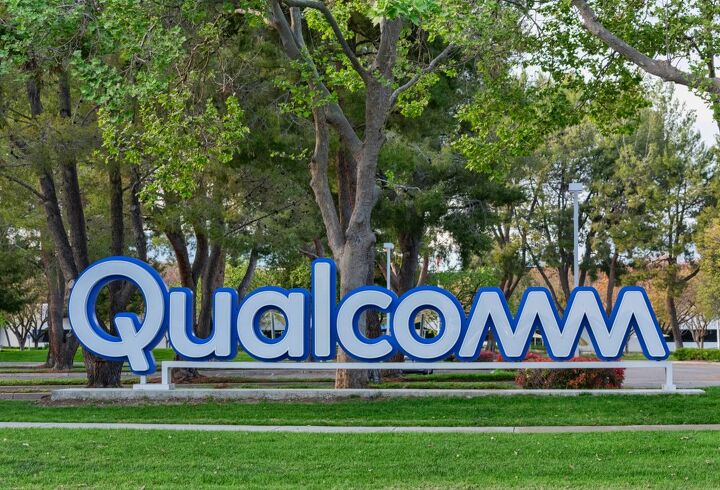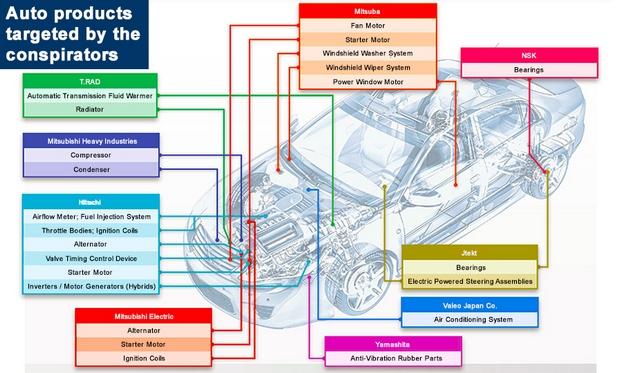#antitrust
FCA, PSA Group Schedule Shareholder Meetings to Finalize Merger
The merger between Fiat Chrysler Automobiles and PSA Group is reportedly progressing smoothly, with the involved parties announcing general meetings for their respective shareholders on Wednesday. Scheduled to take place on January 4th, the summit is being held “in order to approve the merger of their companies to allow the creation of Stellantis, which will become the world’s fourth largest automobile manufacturer by volume,” according to a joint release.
Cash in Your Chips: Automakers Ask FTC to Seek Appeal After Losing Qualcomm Case
Frequently on the cutting edges of technology, the automotive industry has been slamming chips into vehicles to facilitate communications ever since General Motors launched OnStar back in 1996. This evolved into cars boasting reliable navigation systems and remote vehicle diagnostics until they literally started becoming mobile internet hot spots.
Now the industry wants to further ingrain connectivity by equipping all vehicles with 5G — opening the road for new features and the ability to harvest your personal data more effectively.
This has required deals with tech chip manufacturers like Qualcomm, which requires companies to sign a patent license agreement before actually selling any of its hardware or software. But regulators around the globe worried the practice may be monopolistic, violating antitrust laws. The Federal Trade Commission (FTC) brought a case against the business in 2017. Despite winning that case in 2019, a U.S. appeals court overturned the decision earlier this month, deciding Qualcomm could continue conducting business as usual. Now, tech companies (mainly Qualcomm rivals) and a gaggle of automakers are urging the FTC to seek an appeal following the loss.
European Cartel Probe Suspects German Automakers of Illegal Agreements
While Europe appears infinitely suspicious of German automakers, it hasn’t been nearly as eager to cuff suspects and cart them off to the slammer. Considering how unappealing Japan’s treatment of a former Nissan employee happened to be with the general public (regardless of his guilt/innocence), that’s probably wise. Slow and sure is the ideal strategy for tackling corporate corruption — it just has the unfortunate consequence of dragging everything out.
In 2018, BMW, Daimler, and Volkswagen Group became the focus of an investigation aimed at uncovering illegal cooperation. Allegations going back to 2017 stipulated the three had coordinated on the rollout of clean emissions technology (specifically AdBlue); at the same time, Germany was under heavy scrutiny for the leeway it was giving automakers after VW’s diesel emission scandal. Before long, claims arose that Germany’s manufacturers had been effectively running an automotive cartel for decades, with supporting evidence slowly mounting.
Nine Japanese Companies, Two Execs to Plead Guilty in Ongoing Auto Parts Price-Fixing and Bid-Rigging Investigation
Source: United States Department of Justice
Nine Japanese auto suppliers and two executives have agreed to plead guilty and pay more than $740 million in fines for participating in a price fixing conspiracy, the U.S. Department of Justice said yesterday. The two executives, one an American citizen, the other Japanese, will have to serve prison terms. According to the DoJ, thirty different components were involved and they were sold to all three domestic automakers as well as the U.S. operations of Honda, Mazda, Mitsubishi, Toyota and Fuji Heavy Industries, which owns the Subaru brand. The automakers have cooperated with the investigation. More than 25 million vehicles sold in the U.S. were affected by the conspiracy, raising costs to automakers and consumers alike, U.S. Attorney General Eric holder told a press conference in Washington yesterday.



















Recent Comments